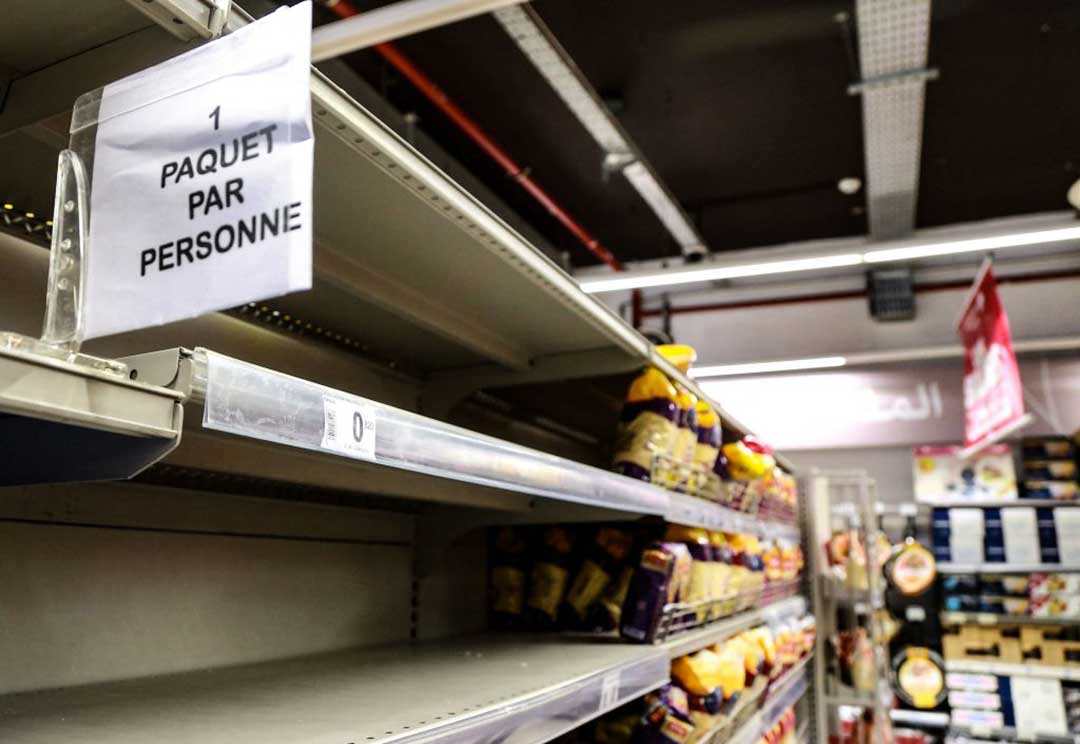Russia’s War Already Impacting Africans
ADF STAFF
African nations are already feeling the devastating ripple effects from Russia’s invasion of Ukraine.
Russia’s war against Ukraine will have a lasting impact on the continent’s economies, most notably increased prices on grains, fertilizer and fuel.
“Sometimes we go to bed hungry because life has become so expensive,” Kenyan market vendor Beatrice Atieno told the news website Der Spiegel. “Bread especially is something I can no longer afford to buy. We eat potatoes for breakfast instead.”
Experts say food prices will continue to rise significantly, because much of the wheat imported by Algeria, Egypt, Kenya, Nigeria, Sudan, Tanzania, Tunisia and several other African countries comes from Ukraine and Russia.
In 2020, African countries imported $4 billion in agricultural products from Russia, about 90% of which was wheat. The continent also imported $2.9 billion in agricultural products from Ukraine, nearly half of which was wheat.
The two countries are also global leaders in exporting maize and sunflower oil.
“The wheat prices have already exploded here, and millers have very little access to capital,” Paloma Fernandes of the Cereal Millers Association in Kenya told Der Spiegel, also noting that transportation costs have risen with oil prices.
Wandile Sihlobo, senior fellow with the Department of Agricultural Economics at Stellenbosch University and chief economist of the Agricultural Business Chamber of South Africa, believes Russia’s intensifying assault could disrupt trade and food security around the world.
Big increases in the price of grains and oilseed have been among the key drivers of international food price increases since 2020, he said.
“Disruption in trade, because of the invasion, in the significant producing region of the Black Sea would add to elevated global agricultural commodity prices — with potential knock-on effects for global food prices,” he recently wrote for nonprofit news organization The Conversation Africa.
“A rise in commodities prices was already evident just days into the conflict.”
Russia, also one of the top suppliers of farming inputs, leads the world in exporting fertilizer ingredients, and prices have spiked in recent months. The price of ammonia, for example, rose 260% between December 2020 and December 2021.
Smallholder farmers in Southern Africa are expected to use less fertilizer than normal this season, which could limit harvests significantly.
Abeer Etefa, a World Food Program spokesperson based in Cairo, said the global outlook is troubling.
“War leads to greater food insecurity, and food insecurity increases the chance of unrest and violence,” she told the newspaper The Guardian. “So, a conflict in Ukraine leading to hunger and pushing people into food insecurity elsewhere could have potential for unrest and violence in other areas. And really, the world cannot afford another conflict.”
There are other under-the-radar effects of Russia’s aggression on the continent, as United Nations sanctions have clamped down on Russian banks, tourism, travel and business.
Africa’s most populous country is feeling the impact.
A lack of jet fuel in Nigeria has forced airlines to cancel and delay a number of flights along major routes. High food prices and double-digit inflation have forced many Nigerians to replace modern medications with herbal remedies, according to Africanews website.
The war also threatens completion of Nigeria’s multibillion-dollar Ajaokuta Steel Complex, which Russia agreed to finish and bring to full capacity by 2023. The project, which already has cost more than $8 billion since a Russian company began work in 1979, promised 100,000 jobs.
Perhaps the biggest shock for Africa is the invasion’s impact on humanitarian aid. Some existing goods and services will be diverted to Ukraine. Funding for Africa is getting harder to find.
The U.N. recently sounded an alarm over a lack of funds for drought relief in Somalia, where 4.5 million people, about 30% of the population, are affected.
Adam Abdelmoula, U.N. humanitarian coordinator for Somalia, said the organization has raised only 3% of the $1.46 billion needed.
“The outlook was already grim prior to the outbreak of the Ukraine crisis,” he said during a March 9 news conference in Kenya’s capital, Nairobi. “I am extremely concerned.”


Comments are closed.